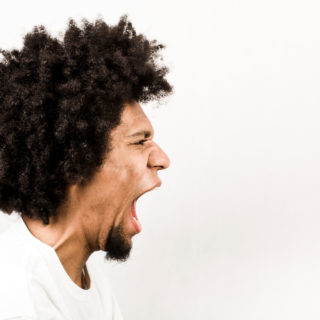
I haven’t been sick since I was seven. It’s a point of pride and a conversation opener for me. While most people brag about starting families and increased investment options, you can find me on the other side — pretending to not know anti-malarias and anti-biotics apart, for how little a role they play in my life.
But living just adjacent to my pride, is a debilitating fear that this good health will one day be taken away from me. That I would, some time in the future, be confined to a hospital bed. And not just any hospital — a poorly funded, severely under-resourced and most likely striking Nigerian hospital, whose sheer out-of-depthness would require that I be flown out of Nigeria, to exchange Naira for whatever foreign currency in search of proper medical care.
And being a part of Nigeria’s middle class — whose standing is just one minor economic misstep away from being a step below, it terrifies me.
“You’re one health emergency away from going bankrupt in Nigeria”, is a repeated refrain whose message rings true where the annual salary of the average Nigeria, which ranges between ₦658 324 and ₦5 000 0000 is considered.
Consider the math where an ailment like Chronic Kidney Disease, which affects 17,000 Nigerians annually is concerned. At least 180,000 Naira is required to cover its mandatory weekly dialysis sessions. And a further 6.5 million Naira to cover the requisite kidney transplant. The earnings don’t even come close.
Even more terrifying is the spate of Cancer, which currently affects over 100 000 Nigerians – 80 000 of which pass on from the disease, annually. To fund the treatment of this disease, which includes: regular screening, clinical assessment and chemotherapy, the average Nigerian can be faced with a medical bill going upwards of 20 million Naira.
With diseases like this, it is fairly common place for individuals to first attempt self-care, wholeheartedly willing the disease to go away with agbos and other merely palliative measures. This escalates to self-funding, before turning to friends and family for assistance.
And that is where the reality of the Nigerian health sector pops up — one big crowd-funding project.
With Nigerian families being people of pride, most problems are usually kept in-house. So you can be assured of every penny being scraped, and every last Naira sourced from familial pockets, before the stark reality of incomes — communal or no — just not holding up to the magnitude of bills major illnesses accumulate.
And then comes the painful part, shedding this pride and looking to outside help, seeking assistance from friends, acquaintances and foes alike. Which is why Nigerian social media these days has taken the form of a GoFundMe extension, for every ailment from various cancers to kidney diseases, to even cleft palates. Funding for varying medications for sustenance can are not left out.
Heartbreaking images of emaciated children, grown persons with body parts over-run with cancer, others with needs ranging from aid for diabetes to appeals for assitance with amputations, assail Nigerian feeds on a daily or even hourly basis.
To add maybe authenticity to the appeals, heart-rending videos and pictures of the indisposed in their most private, most vulnerable states are put on display. Using their last vestiges of energy, in varying stages of obvious discomfort — they beckon the public, completely by-passing the government who receives taxes and aid for this very reason, to give them a renewed chance at life through financial aid.
And for those yet to be privy to the power of social media, street-soliciting and car-to-car appeals in traffic by a relative, close associate or even the ailing party themselves, are an all too common phenomenon.
And if that isn’t enough to demoralise healthcare seekers — state-run health institutions are usually plagued with strike actions. Disgruntled practitioners, fed up with the piss-poor treatment they are subjected to — where one too many instances of doctors performing surgeries with illumination provided from the torches of their mobile phones; or having to make do with makeshift incubators, composed of cardboard boxes, with a bulb and hot water bottle in the 21st century. These are problems that are sure to persist, with a government that dedicates less than 15% of its annual budget to the health sector, with 5.95% being the highest dedication, back in 2012.
And while the government’s efforts, through the NHIS holds its own for providing basic care, it remains elusive to most Nigerians, with less than 7 million of Nigeria’s 180 million being covered under the scheme. Where a majority of its enrollees are federal government workers.
Added to this is the fact that most healthcare providers under the scheme shy away from providing treatment for chronic illnesses; and where it does provide for treatment, only the initial stages of care are covered.
Presently, I guard my health with manic earnestness. You can find me religiously avoiding re-heating food in plastic containers, randomly checking my heart rate to make sure it never veers away from the 120/80 mark. Indulging in whatever indigenous concoction my mother whips to cleanse my system and rid me of bad dreams or engaging in more exercise than my lazy twenty-something body would prefer in the mornings.
While these are almost laudable for a person looking to make the most of their well-being, doing so out of fear that the health care system of my country is certain to fail me, should things hit the fan, is certainly is not the way to go.




